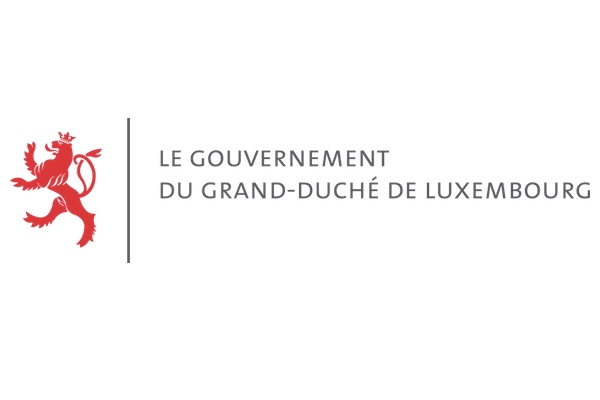
On Wednesday 29 October 2025, Luxembourg’s Ministry of the Environment, Climate and Biodiversity and the Ministry of the Economy announced the launch of a public consultation on the draft Social Climate Plan, which will run from Wednesday 29 October 2025 until Thursday 16 January 2026.
According to the ministries, the draft Social Climate Plan, approved by the Government Council (Cabinet) on Tuesday 22 October 2025, represents a key instrument to support vulnerable households and micro-enterprises most exposed to costs associated with the expansion of the European Union Emissions Trading System (EU ETS 2).
The ministries note that through 48 measures, the plan aims to support vulnerable households, micro-enterprises and transport users, particularly those most affected by energy and transport poverty during the energy transition, by mitigating the socio-economic impacts of rising fossil fuel prices. These increases may pose a particular challenge for the target groups, including those who devote a significant share of their income to energy, do not yet have access to alternative mobility solutions, or face financial barriers to investing in measures to reduce their consumption. The goal is to provide targeted support and opportunities for adopting more sustainable practices.
Minister of the Environment, Climate and Biodiversity, Serge Wilmes, stated: “Climate change is a reality that affects each and every one of us, and its consequences are not experienced in the same way. The energy transition can only succeed if it is fair and inclusive. With the Social Climate Plan, the government is providing a concrete response to protect the most vulnerable: households as well as micro-enterprises, ensuring that no one is left behind. Together, let us build a sustainable and just future starting today.”
Minister of the Economy, SMEs, Energy and Tourism, Lex Delles, emphasised: “The adoption of the draft Social Climate Plan marks an essential step in our commitment to a just and inclusive energy transition. In the face of rising energy prices, it is our duty to support the most vulnerable households and businesses. Through measures such as state-shared renewable electricity or support for photovoltaic installations on affordable housing, we make the energy transition accessible to all.”
To ensure that the proposed measures are fair, accessible and adapted to the real needs of citizens and economic actors, the Luxembourg Government has invited the public to actively participate in this consultation via the website zesumme-vereinfachen.lu, which is available in English, French and German.
According to the ministries, public consultation is a process to gather opinions, observations and proposals from citizens and stakeholders on matters of general interest. It aims to inform the public, foster dialogue, and integrate citizen expertise into the development of measures.
In parallel, the ministries announced that an in-person information event will be held on Wednesday 19 November 2025, from 18:00 to 19:30, at the Chamber of Trades in Luxembourg-Kirchberg, to present the proposed measures included in the Social Climate Plan project.
The ministries noted that since 2005, the European Union has operated a carbon market: the Emissions Trading System (EU ETS-1). This mechanism covers greenhouse gas emissions from large industrial installations, energy production, aviation and maritime transport. A second emissions trading system, EU ETS-2, is due to come into force in 2027, extending coverage to new sectors, including buildings and road transport, which account for a significant share of emissions in the EU.
With the introduction of the CO2 tax in 2021, Luxembourg had already anticipated the implementation of EU ETS-2. By 2025, the Luxembourg CO2 tax stood at €40 per tonne of CO2.
To mitigate these effects and ensure a just transition, each member state is required to develop a Social Climate Plan, taking into account the specific challenges of its territory and ensuring that the ecological transition is equitable.
Luxembourg’s draft Social Climate Plan is part of a broader vision of social justice, integrating all dimensions that structure citizens’ living conditions and resulted from collaboration between the Ministry of the Environment, Climate and Biodiversity, the Ministry of the Economy, and the Ministry for Family Affairs, Integration and the Greater Region, in partnership with the Ministry of Finance and the Climate Agency. In addition, a dedicated working group supported the analyses carried out by STATEC, particularly for evaluating the overall impact of the proposed measures.
In parallel, an informal consultation process launched in late March 2025 via an online questionnaire allowed a broad range of stakeholders to contribute from the outset. Between June and early October 2025, bilateral exchanges with key actors enabled deeper exploration of specific aspects of the plan. The public consultation also involves the Platform for Climate Action and Energy Transition and the Observatory of Climate Policy (OPC).
According to the ministry, a key measure is the social compensation introduced alongside the CO2 tax and the Luxembourg Government is committed to ensuring that any form of carbon taxation is accompanied by an appropriate compensation mechanism, prioritising households in the lowest income quintiles.
Moreover, the draft Social Climate Plan consolidates, in part, measures already implemented or planned under the National Integrated Energy and Climate Plan (PNEC) and the coalition agreement, impacting support and assistance for vulnerable households and micro-enterprises. These measures are designed to prioritise the social dimension of the climate and energy transition. They include:
⁃ Individual housing aid schemes
⁃ Pre-financing under the “Klimabonus Wunnen” support scheme
⁃ Implementation of social car leasing
⁃ Upscaling of the pilot project “Zesumme renovéieren”
⁃ Financial support for photovoltaic installations on affordable housing
⁃ Assistance for households experiencing energy poverty
⁃ Establishment of a single social services desk
⁃ The draft plan also introduces new measures, such as:
⁃ Conducting a study on rental challenges in the energy transition
⁃ Pre-financing of the “top-up social” aid scheme
⁃ Introduction of a charging point right
⁃ Sharing of renewable electricity by the State with vulnerable households and micro-enterprises








